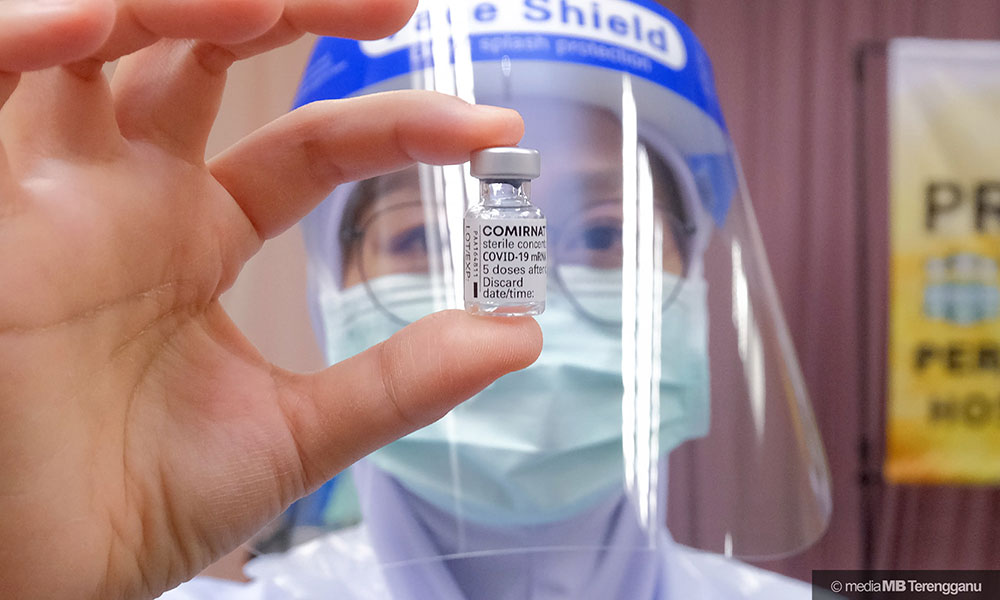The Association of Private Hospitals Malaysia (APHM) wants approval to procure Covid-19 vaccines from other sources, on top of what the government is already acquiring through its own channels, to help expedite the vaccination process.
APHM president Dr Kuljit Singh said this will help the government achieve its herd immunity target faster.
Kuljit pointed out that under the government-only vaccination rollout, the wider population will only receive their vaccine under Phase 3 beginning May which will extend to 2022, a period that he said is too long.
"We are happy to procure vaccines from different sources once there are approvals given by the National Pharmaceutical Regulatory Agency (NPRA).
"The reason private hospitals strongly feel that some assistance should be given to the government is that the current three-stage programme, which is expected to end in February 2022, is extremely long and not acceptable.
"Private hospitals could be mobilised very fast to complement government effort in ensuring the majority of the population is vaccinated in the shortest possible time to assist in achieving herd immunity," he said in a statement.
"This will include utilising the government-endorsed track and trace system to build a database on the provision of vaccination," he added.
Kuljit was responding to Science, Technology and Innovation Minister Khairy Jamaluddin who said there were no immediate plans to purchase and run their own vaccination programmes.
However, he said this may be considered at a later stage.
APHM submitted a proposal to Khairy yesterday on the private sector vaccination plan.
"Every patient vaccinated in the private sector is one patient less that the government has to pay for.
"An interesting proposal could possibly be that the private sector charges a surcharge for every patient vaccinated through it (out of pocket) that would be contributed towards a fund used by the government for the free public vaccination programme," Kuljit added.
He also noted that under the government rollout, the public cannot choose which Covid-19 vaccine they want. He also acknowledged the logistical challenges.

However, Kuljit said the private sector's involvement can help provide vaccine recipients with a choice.
"The provision of a vaccine choice may encourage more people to get vaccinated and thus contribute to achieving ‘herd immunity’ faster," he added.
Kuljit said there will be a demand for such services considering more countries will soon impose a vaccine passport for travel.
He added that there will also be high demand for near term travel from expatriates and the diplomatic community.
"The public vaccination programme will only include them in Phase 3 which may not be feasible. A private sector vaccination option will assist in these cases," he said.
Furthermore, he said companies can fund the Covid-19 vaccination exercise for their employees, shifting the burden of tracking the two-dose regime from the government.
"This will ensure better compliance with the two-dose vaccine as the company will be managing a much smaller number of employees.
"Involvement of the private sector to potentially provide 'at company site' vaccination services may be appropriate and this would be the most appropriate way to move forward," he said, adding that he hoped the government will consider the private sector's proposal.
"We hope the private hospitals are not ignored in our plea to the government as our motives are not to gain profits but to help out as partners with the government.
"Finally, with the availability of different types of vaccines in private hospitals, it will curtail the occurrence of certain quarters trying to jump the queue in the national vaccination programme and further deprive those required to be vaccinated using the programme," he said.
Under the National Covid-19 Immunisation Programme (NCIP), Phase 1, which started end of February until April, involves medical frontliners, enforcement personnel, welfare officers, elected representatives and teachers with comorbidities.
Phase 2 will run from April to August and involve 9.4 million people classified as high-risk groups. These groups include the differently abled, those above 60 years old and those with comorbidities such as heart disease, diabetes and high blood pressure.
Phase 3 will run from May to February 2022 for all other Malaysians aged 18 and above.

Meanwhile, Pakatan Harapan's Covid-19 vaccination committee said the government should team up with the private sector to help speed up the vaccination process.
For example, they said a collaboration could create more vaccination distribution centres in private clinics and hospitals, to reduce bottlenecks.
However, they stressed that any partnership must be transparent, and that vaccines should not be sold to the private sector as long as there is a local shortage of vaccines.
"The private sector will provide injections according to the name schedule determined by the Health Ministry.
"Some in the private sector may even take part in the NCIP as their CSR contribution," they added.
The Harapan committee members include former health minister Dzulkefly Ahmad, former deputy health minister Dr Lee Boon Chye, Bandar Kuching MP Dr Kelvin Yii, Lumut MP Dr Mohd Hatta Ramli, Bayan Baru MP Sim Tze Tzin, Bangi MP Ong Kian Ming, and health exco members for Selangor (Dr Siti Mariah Mahmud), Penang (Dr Norlela Ariffin) and Negeri Sembilan ( Veerapan Supramaniam). - Mkini




No comments:
Post a Comment
Note: Only a member of this blog may post a comment.